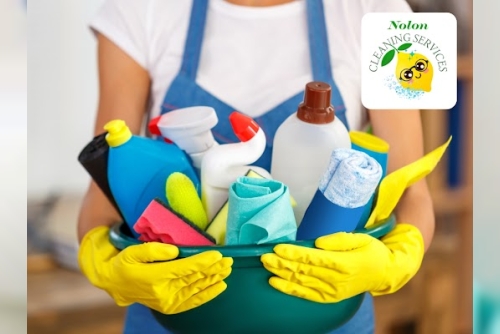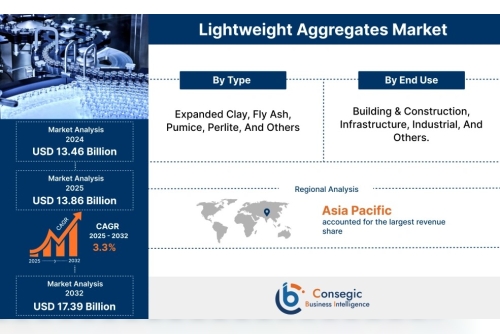Corrosion testing is a critical process for ensuring the durability and quality of materials exposed to harsh environments. One of the most widely recognized methods for corrosion testing is the salt spray test, conducted using specialized equipment such as the salt spray chamber, also known as the salt spray fog cabinet. This blog explores the essentials of salt spray testing, the features of salt spray chambers compliant with ASTM B117, and insights into the salt spray test machine price range.
What is Salt Spray Testing?
Salt spray testing is a standardized method to evaluate the corrosion resistance of materials, coatings, and surface treatments. It involves exposing samples to a controlled saline mist for a specific duration, simulating the effects of prolonged exposure to marine or industrial environments.
The test is widely used in industries like automotive, aerospace, marine, and construction to ensure that products meet durability standards before deployment.
Key Equipment: The Salt Spray Chamber
A salt spray chamber, often referred to as a salt spray fog cabinet, is the primary instrument used for this type of testing. It creates a controlled environment where samples are exposed to a fine mist of saline solution.
Features of a Salt Spray Chamber:Corrosion-Resistant Construction:
Chambers are typically made from high-quality materials like reinforced fiberglass or corrosion-resistant plastics to withstand prolonged exposure to saline environments.
Precise Control System:
Advanced chambers include digital control systems for temperature, mist density, and duration, ensuring consistent and accurate testing conditions.
Compliance with ASTM B117:
The chamber must adhere to the ASTM B117 standard, which defines the operating conditions, solution composition, and parameters for salt spray testing.
Easy Monitoring:
Transparent covers or viewing windows allow users to monitor the test without disturbing the environment inside.
Versatile Sample Capacity:
Chambers are available in various sizes to accommodate small to large samples, making them suitable for diverse industrial applications.
ASTM B117: The Gold Standard in Salt Spray Testing
The Salt Spray Chamber ASTM B117 standard, established by the American Society for Testing and Materials, is the most widely recognized guideline for salt spray testing.
Key Requirements of ASTM B117:Corrosion testing is a critical process for ensuring the durability and quality of materials exposed to harsh environments. One of the most widely recognized methods for corrosion testing is the salt spray test, conducted using specialized equipment such as the salt spray chamber, also known as the salt spray fog cabinet. This blog explores the essentials of salt spray testing, the features of salt spray chambers compliant with ASTM B117, and insights into the salt spray test machine price range.
What is Salt Spray Testing?
Salt spray testing is a standardized method to evaluate the corrosion resistance of materials, coatings, and surface treatments. It involves exposing samples to a controlled saline mist for a specific duration, simulating the effects of prolonged exposure to marine or industrial environments.
The test is widely used in industries like automotive, aerospace, marine, and construction to ensure that products meet durability standards before deployment.
Key Equipment: The Salt Spray Chamber
A salt spray chamber, often referred to as a salt spray fog cabinet, is the primary instrument used for this type of testing. It creates a controlled environment where samples are exposed to a fine mist of saline solution.
Features of a Salt Spray Chamber:Corrosion-Resistant Construction:
Chambers are typically made from high-quality materials like reinforced fiberglass or corrosion-resistant plastics to withstand prolonged exposure to saline environments.
Precise Control System:
Advanced chambers include digital control systems for temperature, mist density, and duration, ensuring consistent and accurate testing conditions.
Compliance with ASTM B117:
The chamber must adhere to the ASTM B117 standard, which defines the operating conditions, solution composition, and parameters for salt spray testing.
Easy Monitoring:
Transparent covers or viewing windows allow users to monitor the test without disturbing the environment inside.
Versatile Sample Capacity:
Chambers are available in various sizes to accommodate small to large samples, making them suitable for diverse industrial applications.
ASTM B117: The Gold Standard in Salt Spray Testing
The Salt Spray Chamber ASTM B117 standard, established by the American Society for Testing and Materials, is the most widely recognized guideline for salt spray testing.
Key Requirements of ASTM B117:Saline Solution Composition:
A 5% sodium chloride (NaCl) solution with a pH of 6.5–7.2 is used.
Temperature Control:
The chamber temperature is maintained at 35°C ± 2°C (95°F ± 3.6°F).
Fog Collection Rate:
The mist density should ensure a collection rate of 1–2 mL/hour over a specific area.
Test Duration:
The duration depends on the material and industry requirements, ranging from hours to weeks.
Adhering to ASTM B117 ensures that test results are consistent, reliable, and comparable across different laboratories and industries.
Applications of Salt Spray Testing
Automotive Industry:
Ensuring that metal components, such as bolts, frames, and exhaust systems, are resistant to rust.
Marine Sector:
Testing the durability of ship parts, anchors, and coatings exposed to saltwater.
Construction Materials:
Evaluating the longevity of outdoor fixtures, fences, and building facades.
Aerospace:
Assessing the performance of aircraft components under corrosive conditions.
Consumer Goods:
Validating the corrosion resistance of products like kitchenware, electronics, and decorative items.
Factors Affecting the Salt Spray Test Machine Price
The price of a salt spray test machine varies depending on several factors:
Size and Capacity:
Larger chambers with higher sample capacity typically cost more.
Smaller chambers for laboratory use are more affordable.
Technology and Features:
Advanced features like digital controls, automated testing, and compliance with multiple standards increase the price.
Brand and Quality:
Reputable manufacturers with a history of delivering high-quality equipment often charge a premium.
Customization Options:
Custom-built chambers tailored to specific testing requirements may have higher costs.
Compliance with Standards:
Chambers that meet ASTM B117 and other international standards are more expensive due to the precision required.
Price Range:Entry-Level Models: $2,000–$5,000
Mid-Range Chambers: $5,000–$10,000
High-End Industrial Models: $10,000–$20,000 or more
It’s essential to choose a machine that balances cost with the specific needs of your application.
Benefits of Using a Salt Spray Chamber
Quality Assurance:
Identifies potential weaknesses in materials or coatings before deployment.
Cost Savings:
Prevents costly failures in the field by addressing corrosion issues early.
Compliance with Standards:
Helps manufacturers meet industry regulations and gain customer trust.
Improved Product Development:
Enables engineers to test and refine new materials and treatments.
Long-Term Durability Insights:
Provides valuable data on how materials will perform over time.
How to Choose the Right Salt Spray Chamber
When selecting a salt spray chamber, consider the following:
Testing Standards: Ensure compliance with ASTM B117 or other relevant standards.
Sample Size: Choose a chamber with adequate capacity for your testing needs.
Features: Look for user-friendly controls, accurate monitoring, and durable construction.
Support and Warranty: Opt for a manufacturer with reliable customer support and a comprehensive warranty.
Conclusion
Salt spray testing is an invaluable process for evaluating the corrosion resistance of materials and ensuring their performance in challenging environments. By using a salt spray chamber or salt spray fog cabinet, manufacturers can simulate real-world conditions and improve the quality and durability of their products. Whether you're looking for a chamber compliant with ASTM B117 or considering the salt spray test machine price, investing in the right equipment ensures long-term benefits for your testing and quality assurance processes.
Make the right choice today and take your material testing capabilities to the next level!
A 5% sodium chloride (NaCl) solution with a pH of 6.5–7.2 is used.
Temperature Control:
The chamber temperature is maintained at 35°C ± 2°C (95°F ± 3.6°F).
Fog Collection Rate:
The mist density should ensure a collection rate of 1–2 mL/hour over a specific area.
Test Duration:
The duration depends on the material and industry requirements, ranging from hours to weeks.
Adhering to ASTM B117 ensures that test results are consistent, reliable, and comparable across different laboratories and industries.





 Why ASTM B117 is the Benchmark for Salt Spray Chambers
Why ASTM B117 is the Benchmark for Salt Spray Chambers






